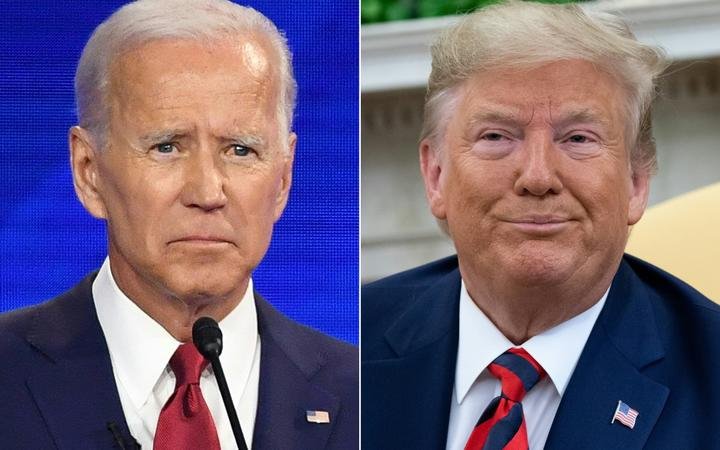Biden: 'Erratic' Trump should not get intelligence briefings
President Joe Biden has said his predecessor Donald Trump should not be given access to intelligence briefings because of his “erratic behaviour”.

US President Joe Biden is refusing to give former president Donald Trump access to intelligence briefings. Photo: AFP
The US has a tradition of allowing former presidents to be briefed on the nation’s security issues – as a courtesy extended by the incumbent.
But when asked by CBS News if Trump would receive the same courtesy, President Biden said: “I think not”.
He cited Trump’s “erratic behaviour” as his reason for refusing access.
“I don’t think there’s any need for him to have an intelligence briefing,” Biden said in his first sit-down interview since becoming president.
He declined to speculate on what his worst fears would be if Trump were allowed to see classified reports, but he suggested the former president could not be trusted to keep confidential information to himself.
“What value is giving him an intelligence briefing? What impact does he have at all, other than the fact he might slip and say something?” Biden said.
The move is the first time a former president has been excluded from the tradition of being granted continued access to the briefings, according to the New York Times.
For weeks after the 3 November presidential election, Trump himself broke with tradition by failing to include his successor in security and intelligence briefings.
Trump eventually agreed to allow the formal transition process to take place, but his administration was still accused of blocking Biden’s access to intelligence.
Trump feuded with the intelligence community throughout his four-year presidency and went through six national intelligence directors.
He questioned reports by US agencies that Russia had interfered in the 2016 election, and assailed intelligence chiefs for being “extremely passive and naive” over Iran.
In 2017, he disclosed highly classified information to Russia’s foreign minister about an Islamic State operation in what was seen as a breach of trust by many in the US intelligence community.
During his CBS interview, Biden was asked about the impeachment trial Trump is facing in the US Senate for his role in the riot at the Capitol in Washington on 6 January.
Biden said he “ran like hell to defeat” Trump in the election “because I thought he was unfit to be president”, but he would leave the Senate to decide whether the Republican should be barred from ever holding public office again.
Fox cancels vocal Trump supporter Lou Dobbs’ show
US broadcaster Fox has cancelled the TV programme hosted by Lou Dobbs, a vocal Trump supporter who is accused of using his platform to spread baseless claims of fraud in the 2020 election.
The news emerged a day after Dobbs was named in a defamation lawsuit filed by the voting machine maker Smartmatic.
The $US2.7 billion lawsuit claims the presenter was part of a “disinformation campaign” against the company.
Fox, which denies the allegations, says the decision to drop Lou Dobbs Tonight was not linked.
The veteran financial journalist, 75, has presented Lou Dobbs Tonight on the Fox Business Network since 2011. He was also an occasional commentator on Fox News, the conservative channel that has been home to several staunch supporters of Trump.
– BBC
